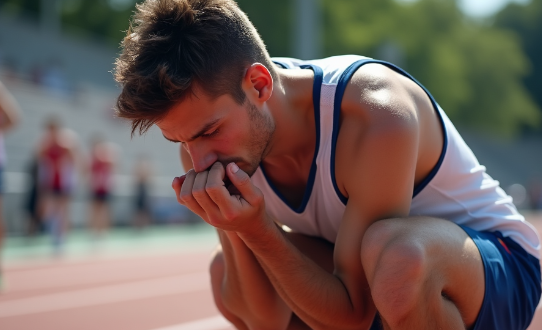Decreased athletic performance refers to a decline in an athlete’s physical abilities, often characterized by reduced strength, speed, endurance, or overall effectiveness in their sport. This can stem from various factors, including overtraining, inadequate rest, poor nutrition, mental burnout, or even underlying medical conditions.
Athletes experiencing decreased performance might notice slower reaction times, increased fatigue, or a loss of motivation and confidence. Addressing these issues typically involves a holistic approach, focusing on balanced training, proper recovery, and mental resilience, all of which are essential to restoring peak performance and preventing future setbacks.
Table of Contents
Key Takeaways
- Hormonal imbalances can significantly impact athletic performance
- Proper nutrition, rest, and recovery are essential for maintaining peak performance
- Overtraining syndrome is a common cause of decreased athletic performance
- Age-related changes in hormone levels can affect athletic abilities
- Regular health check-ups and hormone testing can help identify underlying issues
- Addressing mental health and stress management is crucial for athletes
- Personalized training programs can help prevent performance decline
- Hormone optimization therapy may be beneficial for some athletes
Understanding Decreased Athletic Performance

Decreased athletic performance is a common concern for athletes of all levels. It can be frustrating and demoralizing when your body doesn’t respond as it once did during training or competition. There are many factors that can contribute to this decline, ranging from physical issues to mental and emotional challenges.
One of the most overlooked aspects of athletic performance is hormonal balance. Hormones play a crucial role in regulating energy levels, muscle growth, recovery, and overall physical performance. When hormones are out of balance, it can lead to a significant drop in athletic abilities.
The Role of Hormones in Decreased Athletic Performance

Hormones are chemical messengers that regulate various bodily functions. For athletes, several key hormones are particularly important:
Testosterone
Testosterone is often associated with male athletes, but it’s essential for both men and women. This hormone helps build and maintain muscle mass, increases bone density, and boosts energy levels. Low testosterone levels can lead to decreased strength, reduced endurance, and slower recovery times.
Growth hormone
Growth hormone is crucial for muscle growth, fat metabolism, and tissue repair. It’s released during sleep and after intense exercise. A deficiency in growth hormone can result in decreased muscle mass, increased body fat, and slower recovery from injuries.
Cortisol
While cortisol is often viewed negatively as the “stress hormone,” it plays an important role in athletic performance. It helps regulate blood sugar levels and metabolism. However, chronically elevated cortisol levels can lead to muscle breakdown, fatigue, and decreased performance.
Thyroid hormones
Thyroid hormones regulate metabolism and energy production. An imbalance in thyroid hormones can cause fatigue, weight changes, and decreased endurance.
Common Causes of Decreased Athletic Performance

Several factors can contribute to a Decreased Athletic Performance:
Overtraining syndrome
Overtraining occurs when an athlete pushes their body beyond its ability to recover. This can lead to chronic fatigue, decreased performance, and increased risk of injury. Signs of overtraining include persistent muscle soreness, decreased motivation, and frequent illnesses.
Nutritional deficiencies
Proper nutrition is essential for athletic performance. Deficiencies in key nutrients such as iron, vitamin D, and B vitamins can lead to fatigue and decreased endurance. Athletes should work with a nutritionist to ensure they’re meeting their specific nutritional needs.
Inadequate rest and recovery
Rest is just as important as training for athletic performance. Without proper recovery time, the body can’t repair and strengthen itself. This can lead to decreased performance and increased risk of injury.
Age-related changes
As athletes age, their bodies naturally produce less testosterone and growth hormone. This can lead to decreased muscle mass, reduced bone density, and slower recovery times. However, these changes can often be mitigated with proper training and nutrition.
Mental health issues
Mental health plays a crucial role in athletic performance. Stress, anxiety, and depression can all negatively impact an athlete’s focus, motivation, and physical performance.
The Importance of Hormone Testing for Athletes

Regular hormone testing can be beneficial for athletes looking to maintain peak performance. These tests can identify imbalances or deficiencies that may be impacting athletic abilities. Some key hormones to test include:
- Testosterone
- Growth hormone
- Cortisol
- Thyroid hormones (TSH, T3, T4)
- Vitamin D
It’s important to work with a healthcare provider who understands the unique needs of athletes when interpreting these test results.
Strategies to Improve Athletic Performance
There are several strategies athletes can use to improve their performance and prevent decline:
Optimize training programs
A well-designed training program should balance intensity and recovery. This may include periodization, where training intensity and volume are varied over time to prevent overtraining and promote peak performance.
Focus on nutrition
Proper nutrition is essential for athletic performance. This includes not only meeting calorie needs but also ensuring adequate intake of protein, carbohydrates, and healthy fats. Hydration is also crucial for maintaining performance.
Prioritize rest and recovery
Adequate sleep and rest days are essential for athletic performance. Athletes should aim for 7-9 hours of sleep per night and include regular rest days in their training schedule.
Manage stress
Stress management techniques such as meditation, yoga, or counseling can help athletes maintain mental health and focus.
Consider hormone optimization therapy
For some athletes, particularly those experiencing age-related performance decline, hormone optimization therapy may be beneficial. This should be done under the guidance of a qualified healthcare provider.
The Potential Benefits of Hormone Optimization for Athletes
Hormone optimization therapy can offer several potential benefits for athletes:
- Increased muscle mass and strength
- Improved recovery times
- Enhanced energy levels and endurance
- Better body composition (increased lean mass, decreased fat mass)
- Improved bone density
- Enhanced mood and mental focus
However, it’s important to note that hormone therapy is not appropriate for all athletes and should only be considered after thorough testing and consultation with a healthcare provider.
Risks and Considerations of Hormone Therapy
While hormone optimization can offer benefits, it’s not without risks. Potential side effects can include:
- Acne
- Sleep apnea
- Enlarged prostate (in men)
- Increased risk of blood clots
- Mood changes
Athletes considering hormone therapy should carefully weigh the potential benefits against the risks and consider their long-term health goals.
The Role of Lifestyle Factors in Maintaining Athletic Performance
While hormone balance is important, lifestyle factors play a crucial role in maintaining athletic performance:
Sleep Quality
Quality sleep is essential for hormone production and athletic recovery. Athletes should prioritize good sleep hygiene, including maintaining a consistent sleep schedule and creating a relaxing bedtime routine.
Stress management
Chronic stress can negatively impact hormone balance and athletic performance. Incorporating stress-reduction techniques such as meditation, deep breathing exercises, or regular massage can be beneficial.
Balanced nutrition
A well-balanced diet that meets an athlete’s specific nutritional needs is crucial for maintaining hormone balance and athletic performance. This may include focusing on whole foods, adequate protein intake, and proper hydration.
Regular health check-ups
Regular health check-ups can help identify potential issues before they significantly impact performance. This includes not only hormone testing but also general health screenings.
The Importance of Individualized Approaches
Every athlete is unique, and what works for one may not work for another. It’s important to work with healthcare providers and coaches who can develop personalized strategies based on an individual’s specific needs, goals, and health status.
Mental Health in Athletic Performance
Mental health is often overlooked in discussions about athletic performance, but it plays a crucial role. Athletes should prioritize their mental well-being, which may include working with a sports psychologist or incorporating mindfulness practices into their routines.
Environmental Factors on Performance
Environmental factors such as altitude, temperature, and pollution can all impact athletic performance. Athletes should consider these factors when training and competing, and adjust their strategies accordingly.
Proper Equipment and Technique
Using proper equipment and maintaining good technique can help prevent injuries and maintain performance levels. Regular assessments with coaches or trainers can help ensure athletes are using optimal form and equipment.
Cross-training in Preventing Performance Decline
Incorporating different types of exercise into a training routine can help prevent overuse injuries and maintain overall fitness. This might include strength training for endurance athletes or flexibility work for strength athletes.
The Potential of New Technologies
Emerging technologies such as wearable fitness trackers and advanced performance analytics can provide valuable insights into an athlete’s training and recovery. These tools can help athletes and coaches make data-driven decisions to optimize performance.
The Importance of Setting Realistic Goals
Setting realistic, achievable goals can help athletes maintain motivation and prevent burnout. These goals should be regularly reassessed and adjusted based on progress and changing circumstances.
Team Dynamics in Individual
For athletes in team sports, team dynamics can significantly impact individual performance. Fostering positive relationships with teammates and coaches can contribute to overall athletic success.
The Impact of Travel on Athletic Performance
For athletes who frequently travel for competitions, managing jet lag and adapting to new environments can be crucial for maintaining performance. Strategies might include gradually adjusting sleep schedules before travel and staying well-hydrated during flights.
Alternative therapies
Some athletes find benefits from alternative therapies such as acupuncture, chiropractic care, or herbal supplements. While the scientific evidence for these approaches varies, they may be worth considering as part of a comprehensive approach to maintaining athletic performance.
Ongoing education
Staying informed about the latest research in sports science and nutrition can help athletes make informed decisions about their training and health. This might include attending workshops, reading scientific literature, or working with knowledgeable coaches and healthcare providers.
Genetics in Athletic
While training and lifestyle factors play a significant role in athletic performance, genetic factors also contribute. Understanding one’s genetic predispositions can help in developing more effective training and nutrition strategies.
The Impact of Age on Athletic Performance
While age-related decline in athletic performance is natural, it’s not inevitable. Many athletes continue to perform at high levels well into their 30s, 40s, and beyond. Understanding how to adapt training and recovery strategies as one age can help maintain performance levels.
| Age Range | Potential Changes in Athletic Performance | Strategies to Mitigate Decline |
|---|---|---|
| 20-30 | Peak physical performance for many sports | Focus on skill development and building a strong fitness base |
| 30-40 | Slight decline in speed and power, improved endurance in some cases | Increase focus on recovery, maintain strength training |
| 40-50 | Further decline in speed and power, potential increase in injury risk | Emphasize flexibility and mobility work, adjust training volume |
| 50+ | Decreased muscle mass and bone density, reduced aerobic capacity | Prioritize strength training, consider hormone optimization therapy |
| Hormone | Role in Athletic Performance | Signs of Imbalance |
|---|---|---|
| Testosterone | Muscle growth, energy, recovery | Fatigue, decreased strength, reduced libido |
| Growth Hormone | Tissue repair, fat metabolism | Increased body fat, decreased muscle mass |
| Cortisol | Energy regulation, stress response | Chronic fatigue, decreased immune function |
| Thyroid Hormones | Metabolism, energy production | Weight changes, fatigue, mood swings |
- Common signs of overtraining:
- Persistent muscle soreness
- Decreased performance despite continued training
- Frequent illnesses or infections
- Mood changes, irritability
- Sleep disturbances
- Loss of motivation for training
- Increased resting heart rate
Conclusion
Decreased athletic performance can be a complex issue with many potential causes. While hormonal imbalances can play a significant role, it’s important to consider all aspects of an athlete’s health and training regimen. By taking a comprehensive approach that includes proper nutrition, adequate rest, stress management, and regular health check-ups, athletes can work to maintain their performance levels over time.
For some athletes, hormone optimization therapy may offer benefits, but this should always be done under the guidance of a qualified healthcare provider. Remember, every athlete is unique, and what works for one may not work for another. The key is to develop a personalized approach that takes into account individual needs, goals, and health status.
Imagine a mind that’s clear, centered, and always ready for action! Discover how we can help you achieve that edge—schedule your consultation with Revv Health today and get ready to supercharge


